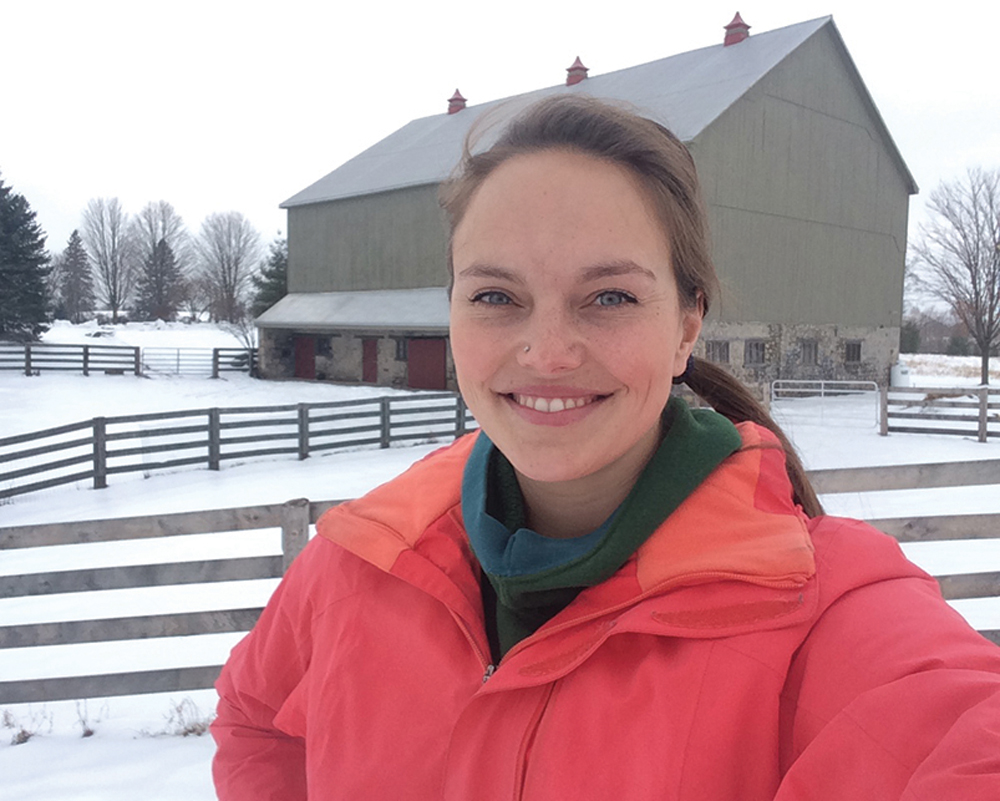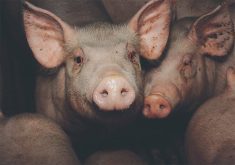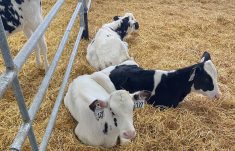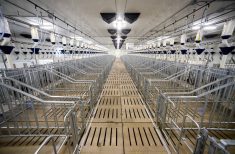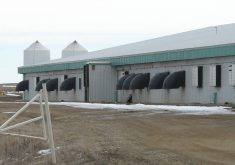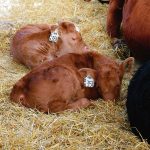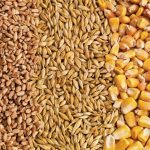Meagan King of the University of Manitoba’s Department of Animal Sciences has noted a lot of progress in how cows are kept, particularly dairy cows.
Now she’s rounding up data on the welfare of another social species important to the well-being of domestic cattle: their human minders.
“We’re so focused on healthy animals and animal welfare that we may overlook the humans,” she said. “I’m working with some people who know more about the human side and I’m trying to link human health and well-being to animal health and well-being.”
Read Also
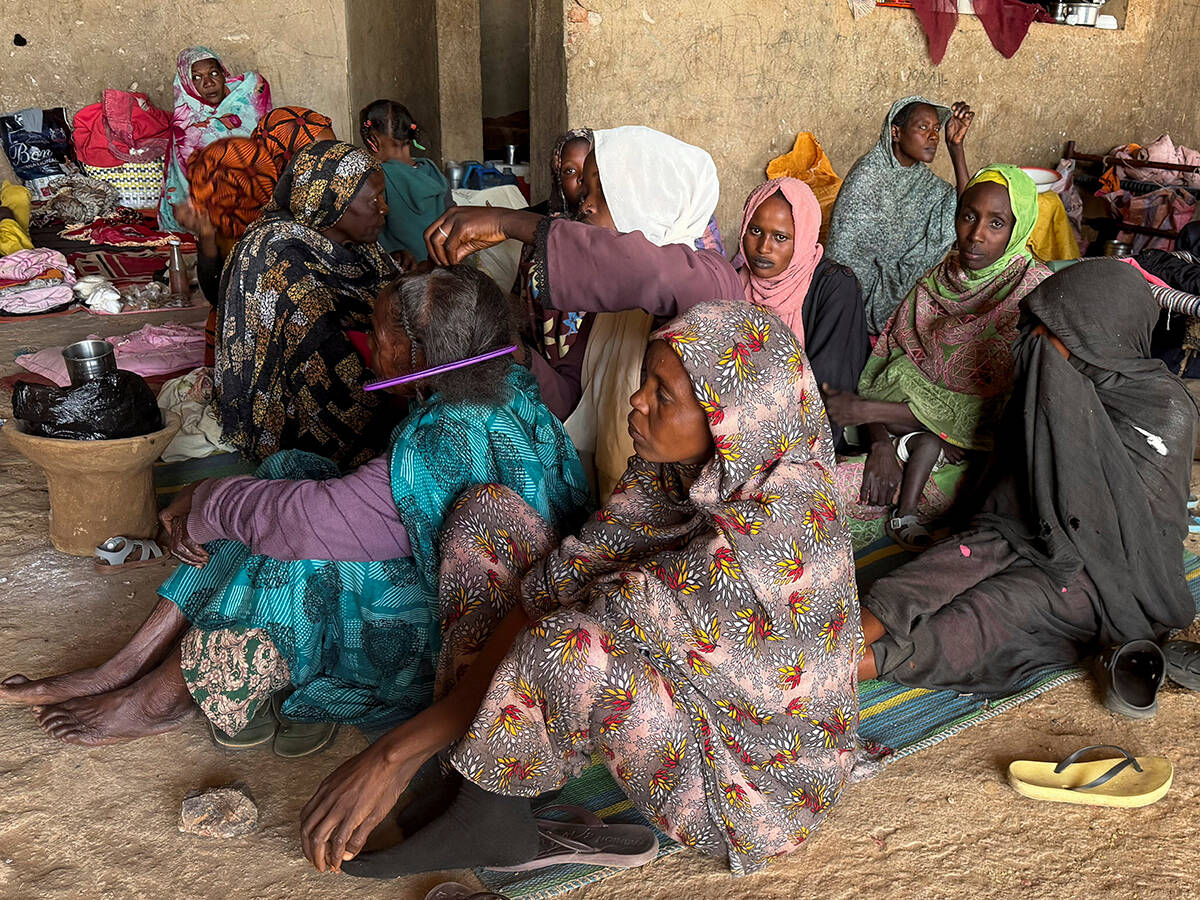
Global humanitarian aid slashed by one-third
Humanitarian aid around the world was cut by a third in 2025 and Canada is one of the culprits.
The idea came from work she did on dairy farms in Ontario. She found that farmers’ stress and mental health scores were related to the number of lame cows in their herds. Managing stressed animals seemed to increase stress levels in their keepers.
“If the human is struggling mentally, maybe that means they’re behind on chores, and having a harder time getting work done could negatively affect animal health,” she said. “Or a bad score on their assessment makes them feel bad and they go into a negative spiral.”
She cited another study that suggested two factors can really affect the well-being of any worker. One is the level of control they have over the job and the other is how laborious the job is. Livestock farming requires a lot of constant labour, feeding animals, keeping their spaces clean and habitable. There’s also the constant surveillance for physical problems within the environment. If things go wrong, a cow’s health can be affected, sometimes quite suddenly. A sick animal, another vet bill, more stress.
There is a low level of control in a fairly laborious job, which puts livestock farming into a high risk quadrant and an emotional danger zone. Add to that the stress farmers face in finding reliable labour and the pressure rises even more.
This seems like common knowledge but it’s never been studied in detail.
“We just know there’s a problem and if we don’t start looking at it and engaging with people who are willing to research this, we’ll never know,” said third-generation dairy farmer Alain Philippot.
“Research comes first, the willingness to talk about (it) is much better than it was 20 years ago. It was something that people didn’t talk about.”
Philippot is on the board of directors for the Dairy Farmers of Manitoba, one of the funders of this study, which includes other diary organizations across Western Canada and Ontario. This study also includes beef producers, who are encouraged to volunteer.
‘We have different models so it would be interesting to see what the stressors are on beef producers’ mental health,” said Philippot. “Does pricing and contract security make a difference? Our dairy products are all consumed by Canadians while the beef industry is heavily reliant on export. What difference does that make on mental health even though you’re basically working with the same animal?”
King has set up a study to find out how these things affect both farmer and livestock and establish some groundwork. She’s looking for volunteers in the farm community, both dairy and beef producers, to fill out a detailed survey.
“The survey is voluntary,” she said. “It’s online, but folks can print it or do it over (the) phone. We are also doing interviews so we will do those however the farmer prefers.”
It starts with a consent form detailing the terms and conditions of the survey. Information given is confidential and will be analyzed using quantitative and qualitative methods.
“There are proper scientific ways of pulling themes out of things that farmers have said and it’s a better way if you’ve got the qualitative and the quantitative,” King said. “It uses mixed methods and it’s a better way to get an overall picture of how life is on the farm.”
One study factor deals with farm automation and robotics. With a shortage of farm labour, machines have sometimes become a farmer’s best employees.
“I can’t say for sure that robotic milkers equals happier farmers but I can tell you that past studies show people have more flexibility,” King said.
“It’s less routine, back-breaking work and more about managing your animals. Another thing, people can have dinner with their families, they can put their kids on the bus in the morning so that flexibility is huge.”
King adds that freeing farmers from routine labour gives them more time to take care of themselves through sports or other diversions. It allows for contact with other people so they can socialize.
“I’d also like to know certain practices that happen on the farm or the farmer’s social support network. Maybe if that’s lacking they have worse animal health,” she said.
“My past studies have shown that farmers who work alone have worse mental health scores. There’s a lot of hypothetical scenarios that I could try to think of.”
The study is an initial foray into an area where there’s not a lot of knowledge, and could result in a base on which to build better support services for the farm community.
“There’s a huge gap between how we treat mental health and how we treat physical health,” said Philippot. “We’re only working on mental health when we’re putting out fires, whereas with physical health we’re at the proactive state and it’s always better to be proactive.”
- Click here for the dairy producer well-being study
- Click here for the beef producer well-being study
Cattle farmers can participate by contacting Meagan King at 613-532-5923 or at [email protected].
Mental health resources for farmers
- Manitoba farmer wellness program
- Manitoba Farm, Rural & Northern Support Services Support tailored to the agricultural community. Toll free: 1 (866) 367-3276 or visit supportline.ca
- Manitoba Suicide Prevention & Support Line • Crisis support regarding suicide. Toll free: 1 (877) 435-7170 or visit reasontolive.ca
- Klinic crisis line: Crisis support for anyone experiencing distress. T: (204) 786-8686 or call toll free: 1 (888) 322-3019



